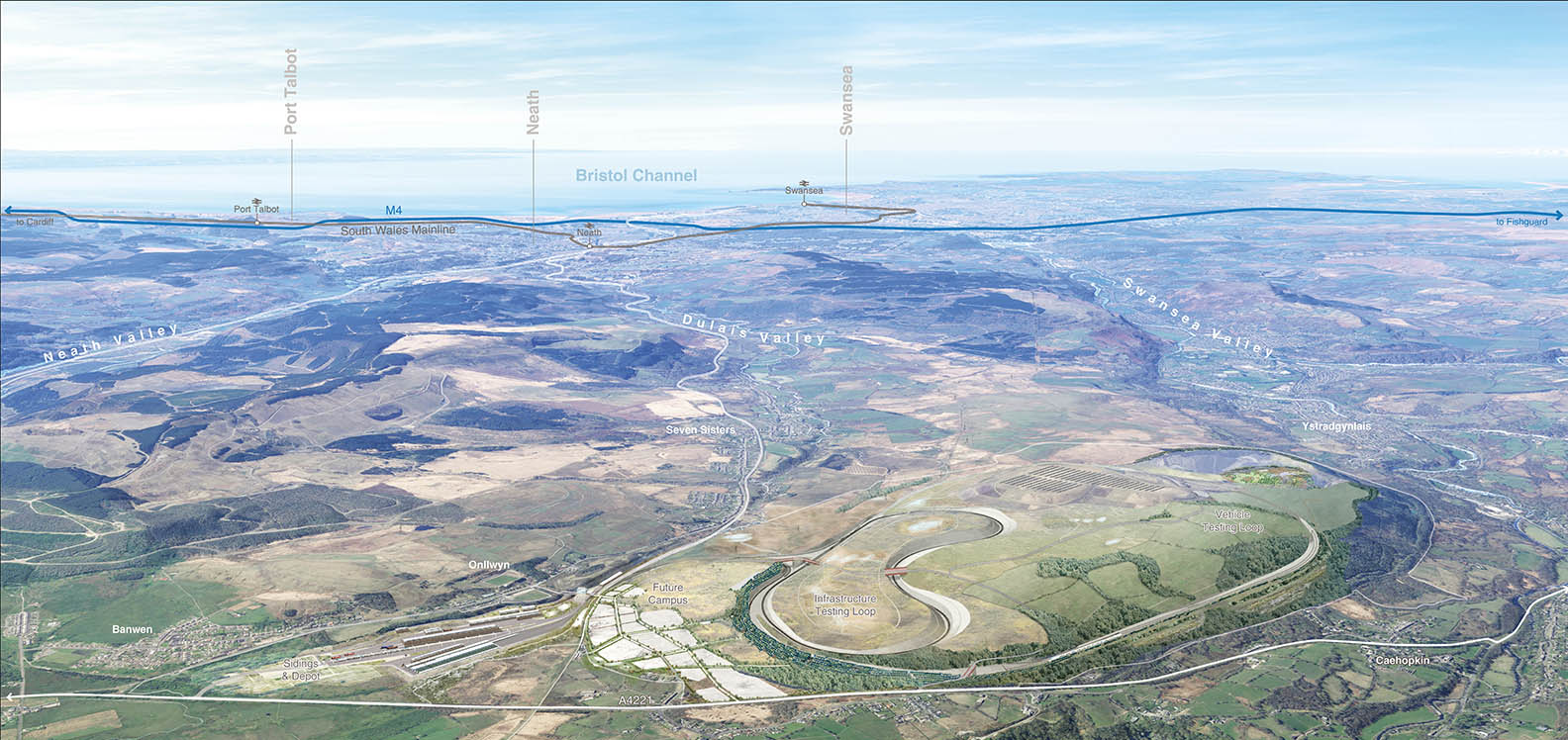
The University of Birmingham and a consortium of Welsh universities including Swansea University have been awarded £15 million by the UK Research Partnership Investment Fund (UKRPIF) to establish a new world-leading railway research and innovation centre in south Wales.
The UKRPIF investment will enable the University of Birmingham, working with Swansea and Cardiff Universities, to establish a new Centre of Excellence for Railway Testing, Validation and Customer Experience at the Global Centre of Rail Excellence (GCRE) site, currently under construction.
The funding is part of £30m announced through UKRPIF to establish two new world-leading railway research and innovation facilities, with the other being a new Centre of Excellence for Railway Through-Life Engineering in Goole.
The successful funding bids include a wider commitment from the rail industry to co-invest £60m, with a further £16m being invested by the University of Birmingham. In total the package represents a £106m boost for UK research and development.
The new Centre of Excellence for Railway Testing, Validation and Customer Experience at GCRE will provide purpose-built facilities alongside major UK railway industrial expertise to support railway innovation, research and development, in collaboration with leading industry partners.
The Global Centre of Rail Excellence in which the new centre will be housed will be a facility for world class research, testing and certification of rolling stock, infrastructure and innovative new rail technologies. It will support the UK and European rail industry in speeding up innovation; supporting decarbonisation and the development of more cost-effective rail infrastructure.
The Birmingham Centre for Railway Research and Education (BCRRE) at the University of Birmingham is Europe’s largest specialist railway research, education, and innovation centre. BCRRE is the lead institution for the UK Rail Research and Innovation Network (UKRRIN) and leads the UKRRIN Centre of Excellence in Digital Systems that works on the development and application of digital technologies for the railway.
It will now also lead the Centre of Excellence in Railway Testing, Validation and Customer Experience, working with Cardiff and Swansea Universities.
Simon Jones, Chief Executive of GCRE Limited, said: “World class research and innovation is at the heart of the Global Centre of Rail Excellence mission. Working with University of Birmingham and their partners, which now include the universities of Cardiff and Swansea, will allow us to make this ambition a reality.
“Developing unique R&D facilities that will benefit academia, industry and most importantly passengers and taxpayers is why we have been established. Today’s announcement is the fruit of a lot of hard work and we look forward to taking the next steps together with our internationally renowned partners.”
Professor Helen Griffiths, Pro-Vice-Chancellor, Research and Innovation, at Swansea University said: “We are delighted to be a partner institution in this exciting new research and innovation centre, and we look forward to collaborating with GCRE including in infrastructure, energy storage, digital twins and materials testing.
“Working in collaboration with academic institutions, the Wales Innovation Network, industrial, commercial and public sector partners is at the heart of our research and innovation ethos, and we are committed to delivering real world impacts through our R&I activity.
Professor Dame Jessica Corner, Executive Chair at Research England, said: “Building on investment from UKRPIF in round 5 of the scheme, I am pleased to announce funding of £30m for this consortium, led by the University of Birmingham, which will continue to ensure that the UK is an international leader in developing revolutionary rail technologies. These are essential to create a more efficient, sustainable and productive railway of the future.
“The creation of two globally unique rail research centres in South Wales and Goole will foster key partnerships between academia and industry, help drive the deployment of new innovations into the sector and develop regional clusters of excellence.”
